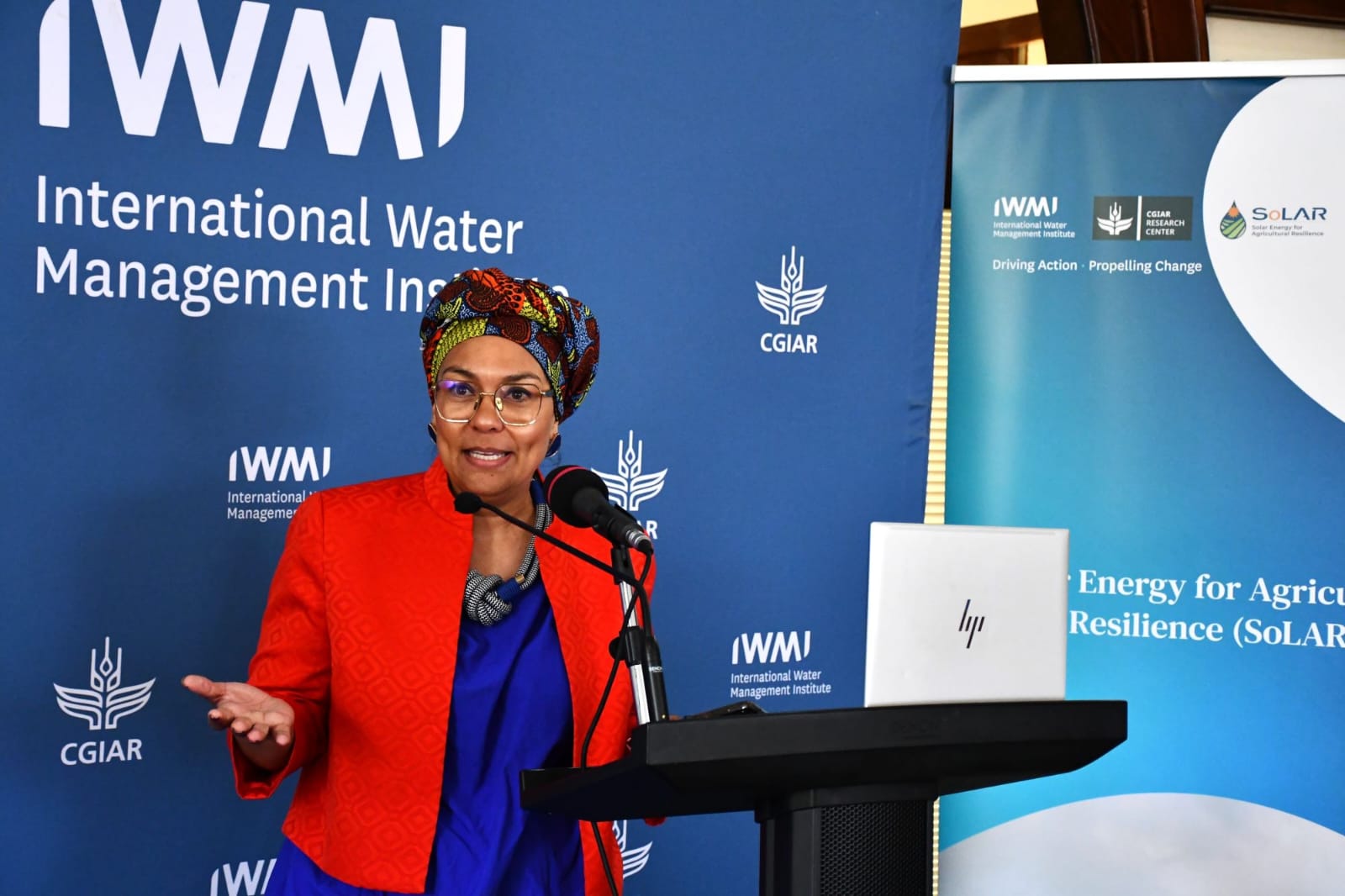
 Dr Inga Jacobs-Mata, Director of Water, Growth and Inclusion
with IWMI at the SoLAR II launch/HANDOUT
Dr Inga Jacobs-Mata, Director of Water, Growth and Inclusion
with IWMI at the SoLAR II launch/HANDOUTThe International Water Management Institute (IWMI) has launched Solar Energy for Agricultural Resilience (SoLAR) Phase II project in East Africa.
The project has been launched with support from the Swiss Agency for Development and Cooperation (SDC).
The initiative aims to unlock the transformative potential of solar technologies across agriculture and food systems, enabling smallholder farmers, value chain actors, and women, youth, and other disadvantaged groups have equitable access to opportunities that build resilience in the face of climate extremes.
Building on five years of work in South Asia (India, Bangladesh, Nepal and Pakistan), SoLAR Phase II expands to Kenya and Ethiopia.
The programme adopts a holistic, systems-based approach to solar energy for sustainable agriculture (SESA).
Unlike conventional projects focused mainly on irrigation, SoLAR II will promote productive uses of renewable energy (PURE) such as solar-powered cold storage, dryers, milling and agro-processing that will help farmers cut costs, reduce losses and create new income opportunities.
Kenya offers strategic entry points to scale solar irrigation and agro-processing with strong policy frameworks including the Vision 2030 development blueprint and Bottom-Up Economic Transformation Agenda (BETA), renewable energy strategies, and the National Irrigation Sector Investment Plan (NISIP).
However, challenges remain in policy, financing, technical capacity, farmer awareness, and ensuring gender-inclusive approaches.
“Kenya’s irrigation potential is 3.3 million acres, while only about 710,000 acres are currently under irrigation. We have a strong political will and a vibrant private sector to help us achieve NISIP’s target to irrigate one million acres by 2030. What is needed now is coordinated action to bridge policy gaps, expand financing options and raise awareness among farmers,” Irrigation Secretary in the ministry of Water, Vincent Kabuti, said.
Through its activities, SoLAR II seeks to generate actionable evidence through tools, frameworks and solar suitability maps to guide decision-making for governments, implementors and investors.
The project also seeks to unlock finance and investment by developing inclusive financing solutions and exploring innovative mechanisms such as a Solar4Africa fund and build capacity and knowledge via training programmes and south-south collaboration.
“Solar energy has the potential to transform food systems, making them more sustainable, inclusive and climate-resilient,” said Dr Inga Jacobs-Mata, Director of Water, Growth and Inclusion at IWMI. “Through SoLAR II, we will work hand-in-hand with governments, private sector actors and communities to create the enabling environment that will allow these technologies to thrive at scale.”
Regional Representative at GOGLA East Africa, Walter Kiprono said solar-powered pumping and irrigation systems remain the most established and mature technologies for the productive use of energy.
The inception workshop brought together senior government officials, private sector leads, farmer representatives, development partners, researchers, financiers and civil society.














